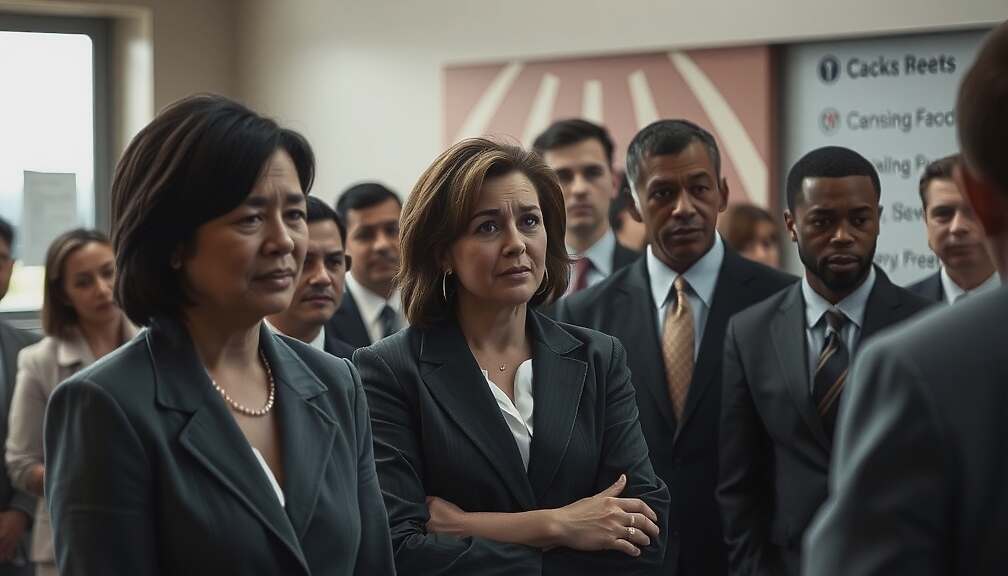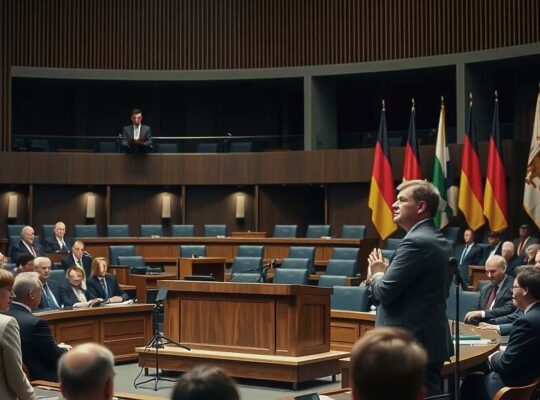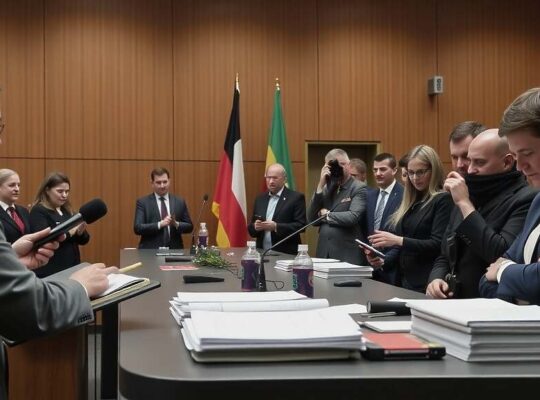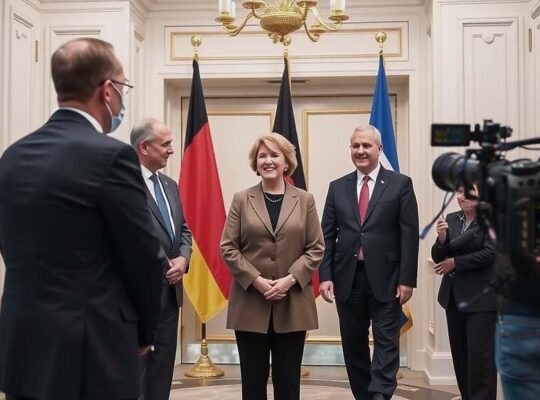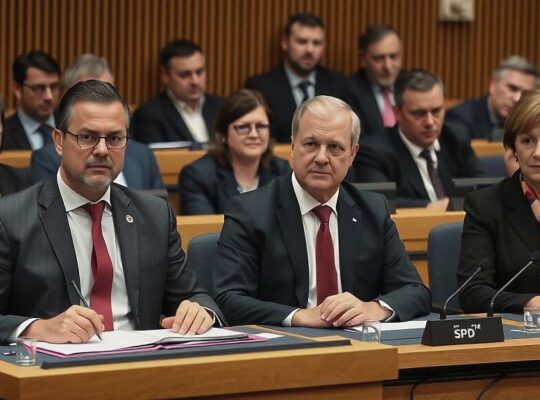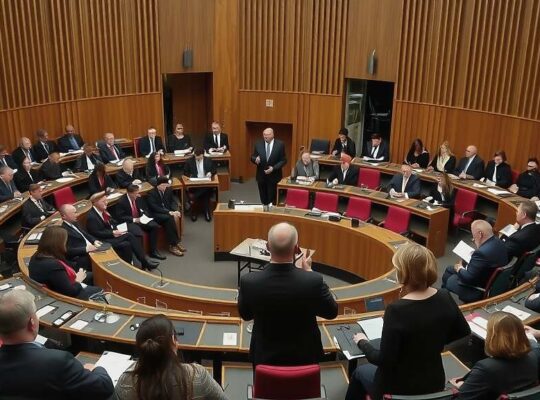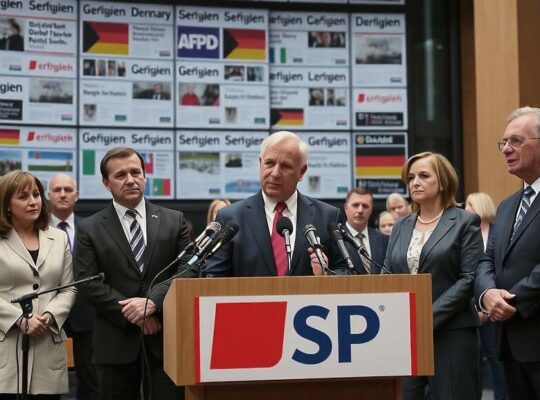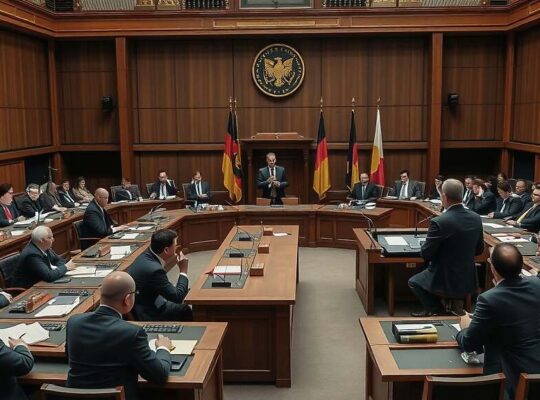The North Rhine-Westphalia (NRW) chapter of the Social Democratic Party (SPD) is embarking on a significant course correction after years of electoral decline, signaling a potential shift in the party’s political direction. Following a unanimous resolution by the non-public state party committee, comprised of representatives from all 54 sub-organizations, a position paper titled “We Have Understood: Time for Honesty and Change” outlines a candid self-assessment and a renewed strategy.
State leader Sarah Philipp acknowledged the recent Bundestag and local elections as “a clear wake-up call” emphasizing the need for fundamental change. Co-leader Achim Post described the move as “a signal of new beginnings” stressing that credibility is earned through concrete action, impacting areas like education, construction, administration and local neighborhoods.
The position paper features stark self-criticism, acknowledging the SPD’s diminishing appeal. Despite avoiding a complete collapse in the recent local elections and managing to retain or regain key positions, the party recognizes a persistent downward trend. “We lose not only because others are louder, but because people no longer believe us” the document states.
The party intends to draw lessons from successful mayors in cities like Herne and Hamm, who have defied the negative trends observed at the federal and state levels. This includes reassessing both the party’s style and its policy platform to regain lost trust and focusing on the approaches employed by municipal candidates.
A renewed emphasis on work and advancement is central to the revised strategy. The SPD aims to reassert its identity as a party championing job creation and equal opportunities for all children. Furthermore, the party intends to solidify its position on issues of internal security and order, articulating clear solutions to concerns surrounding safety, cleanliness and integration.
The paper details the development of 27 specific proposals for the 2027 state election, intended to woo voters in a region once considered the SPD’s stronghold. Recent local elections saw the party’s share of the vote plummet to just 22%, trailing the Christian Democratic Union (CDU) led by Minister-President Hendrik Wüst. The party’s near-defeat by the Alternative for Germany (AfD) in Gelsenkirchen further underscored the depth of the crisis.
The loss of Dortmund, historically dubbed the “heart chamber” of German Social Democracy under Herbert Wehner, to a future CDU mayor, Alexander Omar Kalouti, is considered a particularly symbolic setback. A growing chorus from within the SPD’s municipal base has called for a return to practical realities, moving away from solely focusing on warnings about the AfD or conforming to a perceived left-green agenda.
Duisburg’s long-serving Mayor Sören Link, who successfully contained the AfD’s advance, recently expressed concern that the SPD has neglected its core working-class base, becoming overly preoccupied with a framework of justice for recipients of benefits and minorities. This, he argued, has led to a “thematic alienation” between voters and the party. While acknowledging that the fundamental idea of social equality and opportunity remains relevant, Link pointed to a growing disconnect.
This shift in NRW could provide impetus to SPD federal leader and Labour Minister, Bärbel Bas, as she pushes forward with social reforms in Berlin. Bas, despite belonging to the party’s left wing, recently collaborated with the CDU to roll back aspects of the controversial “citizens’ allowance” and introduce stricter penalties for those refusing work.
The NRW SPD’s revised approach represents a significant departure from years of prioritizing “trauma” stemming from previous welfare reforms. The party now appears to be prioritizing the interests of lower and middle-income earners who contribute to the social safety net. The paper concludes with a hopeful vision: “We want people to say in 2027: The SPD is there for me again, not just in words, but in my everyday life”.


